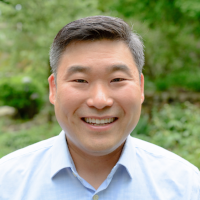how to find your niche
saturday, June 9, 2018 | 11:05 AM - 12:00 PM | Yellowstone Room 1, Yellowstone Room 2
With the emergence of new business sectors and continued specialization of technical training, it has become increasingly common that people have to navigate various career options before finding their own “niche”. The traditional recipe of career success - working up a straight career ladder - is becoming a rarity. Securing employment (in both academia and industry) increasingly requires a wide range of skill sets while retaining the ability to show that one is sufficiently specialized for the job at hand. On the other hand, the breadth of career options available today leads to a growing number of applicants with training in more than one area who, just like highly-specialized individuals, might find it hard to market themselves as the ideal fit for a given position. For this panel, we have invited panelists with diverse backgrounds to share their stories of making successful career transitions. We will present examples of rewarding career paths taken by our panelists with ‘non-standard’ backgrounds, and identify some of the resources available to navigate such challenges.
Richard W. Cho, PhD
development scientist at cell signaling technologies
Richard W. Cho is a Development Scientist at the antibody technology company, Cell Signaling Technology (CST). By leveraging his academic background and expertise as a synaptic neurobiologist, Richard is developing an antibody-based product portfolio to accelerate and enable biomedical research in neuroscience, particularly in the area of neurodegeneration. Prior to CST, Richard investigated molecular mechanisms of synaptic formation and function as a graduate student at Johns Hopkins Medical Institute (Ph.D.) and a postdoctoral fellow at MIT.
Mary Gearing, PhD
scientist i at foundation medicine
Mary Gearing is a scientist at Foundation Medicine, a leader in cancer genomics. She works with the Biomedical Informatics group to curate patient reports and identify treatment options.
Mary first became interested in science communication during her PhD work at Harvard. As a member of Harvard’s Science in the News, she wrote/edited articles for their blog and delivered three public lectures on metabolism. She joined Addgene as a Science Communications Intern, and continued to help manage website and blog content as a full-time scientist. She enjoys tweeting about CRISPR and other molecular biology topics @megearing.
John Koschwanez, PhD
Biologist and Engineer at Novartis Institutes for BioMedical Research
John Koschwanez is a scientist at the Novartis Institutes of BioMedical Research (NIBR) in Cambridge, MA. His group engineers yeast and bacteria to produce and assay for drug molecules; they also develop tools for high-throughput strain engineering and chemical analysis. After graduating from University of Illinois, John joined the US Navy, where he served as a nuclear engineering officer on an aircraft carrier. He then spent many years as an electrical design engineer, public utility project manager, and world-traveling backpacker, all while growing fascinated with evolutionary biology. He returned to school to design and build biological instrumentation and microfluidic devices, and earned his Ph.D. in electrical engineering from the University of Washington. John then joined Andrew Murray’s cell biology lab at Harvard University to learn how to design and perform biological experiments. During his postdoctoral fellowship there, John developed models for the evolution of multicellularity based on extracellular nutrient diffusion and digestion in budding yeast.
Brendan Murray, PhD
Vice President, Client Services at iMotions A/S
Dr. Murray leads global enablement services at iMotions, teaching businesses to conduct their own scientifically-sound neuroscience research. Prior to joining iMotions in 2017, Dr. Murray was Vice President of Client Services and Neuroscience at Nielsen Consumer Neuroscience (formerly Innerscope Research). He received his Ph.D. in cognitive psychology from Boston College under Dr. Elizabeth Kensinger, studying the interaction between emotion and memory in college-aged and healthy older adult (age 65+) populations. He is a frequent university guest lecturer, as well as speaker at both academic and industry conferences.



